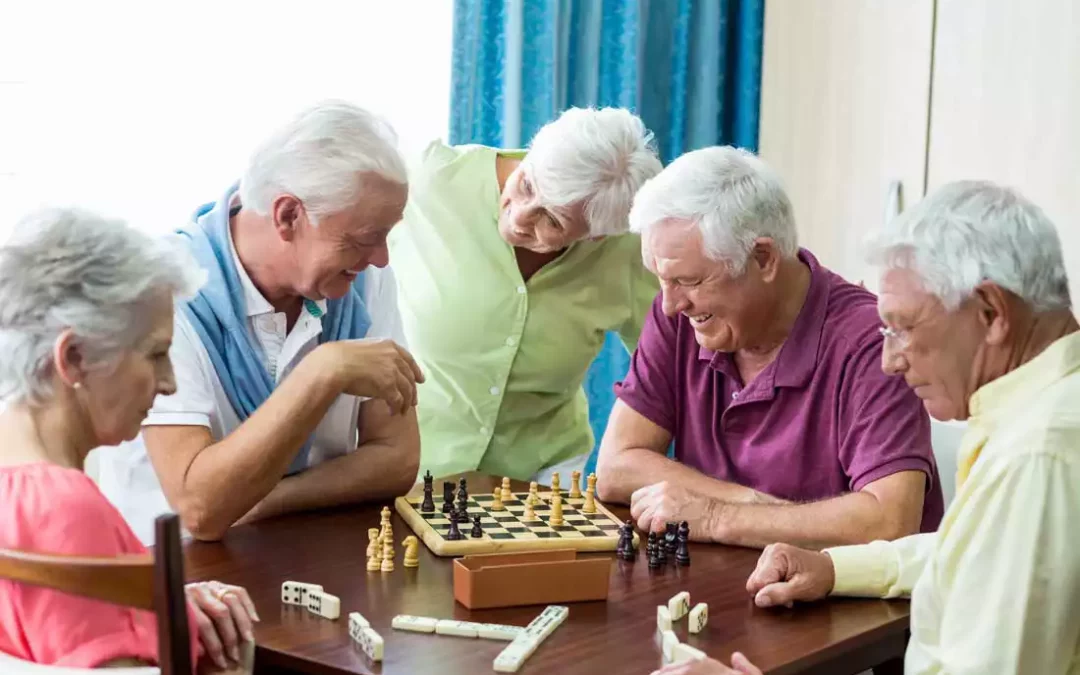From adolescence to adulthood, social connection is consistently essential. Socialization is crucial in children’s learning and emotional, social, and physiological development. And as we move into adulthood, positive social connections can boost mental health, promote feelings of belonging and reduce loneliness.
As we age, socialization remains as essential as ever. Unfortunately, many older adults face barriers that prevent them from making new social connections or maintaining existing ones. Issues like bereavement, reduced mobility, and cognitive decline often prevent seniors from accessing the social support they deserve.
What Are the Benefits of Socialization for Seniors?
Many seniors deal with loneliness, especially if they have lost a spouse or close relative, they shared life with for many years. But maintaining a strong social circle is particularly important and beneficial for aging adults, allowing them to expand their support network and feel a sense of belonging.
Interestingly, socialization doesn’t just benefit seniors’ mental and emotional health – it may also improve physical health. Regular participation in social activities can help keep the brain healthy, potentially preventing or slowing cognitive decline that can lead to conditions like Alzheimer’s disease. It may also help lower blood pressure, boost the immune system, and reduce a senior’s risk of heart disease.
How to Help a Senior Socialize
If you’ve noticed that your loved one’s social life is less active than it once was, there are things you can do to help them regain that all-important sense of belonging and connection:
1. Find a club that aligns with their interests. Many local communities host groups and events like book clubs, games nights, or physical exercise classes for seniors. Explore what’s available in your local area and make some suggestions to your relative. If they’re nervous about joining a new club or group, you might wish to go along with them for the first time (or until they feel settled).
2. Help with transportation. Often, seniors become isolated not because they don’t want to socialize or don’t know where to go but because they can’t practically get to social meetings. Common health issues like cognitive decline or poor mobility can hinder seniors’ physical ability to get out independently or reduce their confidence. For example, things like public transportation and walking may become more challenging to navigate. Simply offering them a ride to their favorite social activities could make a difference.
3. Look at volunteering opportunities. Finding voluntary work is often an excellent way to meet new people with similar passions and interests. Volunteering can also help seniors find purpose and fulfillment while giving back to their local community or a cause close to their hearts.
4. Arrange for family members to provide companionship. With visits from different relatives throughout the week, your loved one can frequently socialize without all the responsibility falling onto one relative. If multiple family members or friends live near your loved one, it might help to organize a visitation schedule.
5. Help them utilize technology. In the modern world, technology can be an invaluable tool to help seniors stay socially connected. For instance, if your parent or loved one has reduced mobility or lives far away, setting them up to use social networks and video calling may help them stay connected with the people they love.
Residential Assisted Living and Socialization
Residential assisted living communities like New Hope Senior Living understand the benefits socialization can offer seniors and provide many opportunities to help residents stay connected. Most communities offer a calendar of physical, creative, recreational, spiritual, educational, and social activities to suit various interests.
Participating in organized groups and activities is optional, and low-key opportunities to stay social are always available for more introverted residents. For example, a residential assisted living community might run social evenings, bingo nights, arts and crafts classes, lectures, pet or music therapy, yoga, or dancing. Many also host special events and seasonal celebrations for residents and their families.
Mealtimes in residential assisted living are usually social, with food served in a communal dining room. Shared living spaces also allow residents to socialize with friends over a coffee during the day or in the evenings – perhaps while enjoying a movie or playing card games.
Many residential assisted living communities also offer transportation. With this convenient service, residents can attend appointments or off-site social events without worrying about how they will get there and back. For seniors who tend towards being more reserved, these organic opportunities to meet new people and form friendships may feel less daunting.
Get in Touch Today
With compassionate activities of daily living support and accessible social opportunities, the benefits of assisted living go well beyond the basics. If you feel your loved one would benefit from expanding their social circle and struggling with activities like cooking, getting dressed, or bathing, residential assisted living could offer the perfect balance. Give us a call today to arrange a personalized tour of our home.

